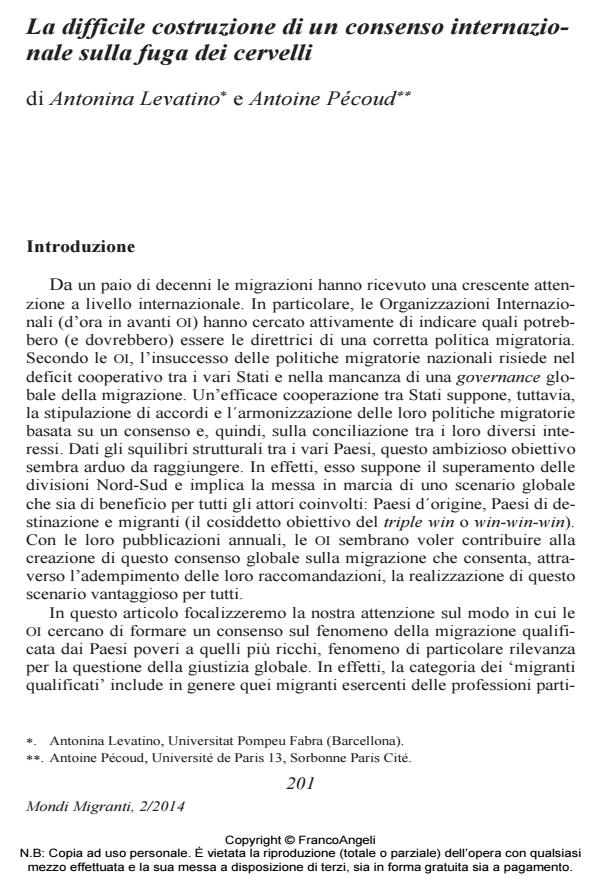The difficult construction of a global consensus on the brain drain
Journal title MONDI MIGRANTI
Author/s Antonina Levatino, Antoine Pécoud
Publishing Year 2014 Issue 2014/2
Language Italian Pages 27 P. 201-227 File size 96 KB
DOI 10.3280/MM2014-002010
DOI is like a bar code for intellectual property: to have more infomation
click here
Below, you can see the article first page
If you want to buy this article in PDF format, you can do it, following the instructions to buy download credits

FrancoAngeli is member of Publishers International Linking Association, Inc (PILA), a not-for-profit association which run the CrossRef service enabling links to and from online scholarly content.
This article analyses the discourses produced at the international level on skilled migration, a phenomenon that has since decades raised strong economic, moral and political dilemmas. It examines the proposals put forward by international organizations to better regulate skilled migration and avoid ‘brain drain’ effects, seeking to understand their internal logic, their contradictions, and their ideological assumptions. These discourses are marked by a tension between neoliberal support to skilled migration and ‘humanitarian’ concerns with the situation of leftbehind populations. In this context, the aim of international organization is to conciliate, at least at the discursive level, these divergent positions and create a global consensus to legitimate their role and their policy recommendations. Yet, this leads to a sort of depoliticisation of migration issues.
Keywords: Brain drain, skilled migration, international organizations, discourse, development.
Antonina Levatino, Antoine Pécoud, La difficile costruzione di un consenso internazionale sulla fuga dei cervelli in "MONDI MIGRANTI" 2/2014, pp 201-227, DOI: 10.3280/MM2014-002010